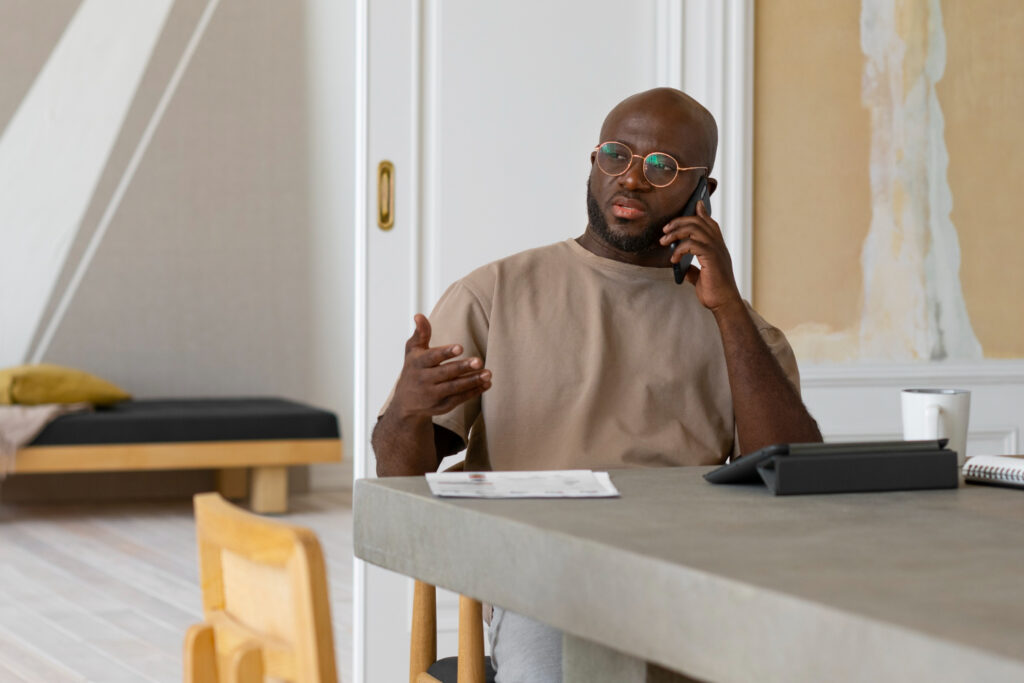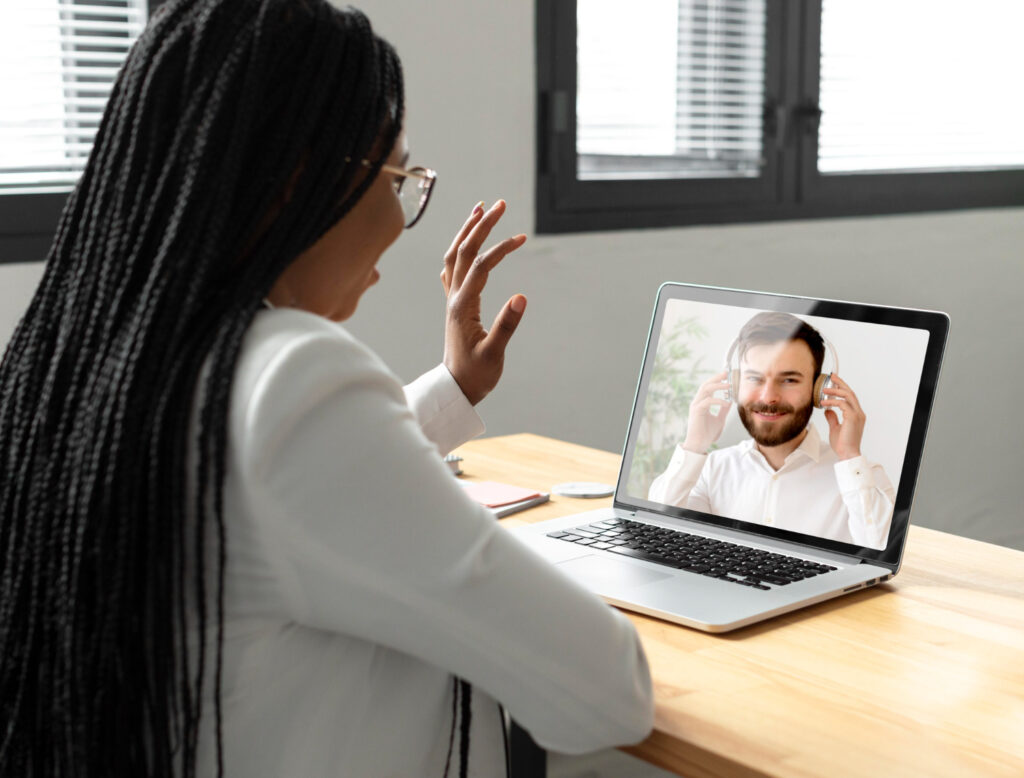A phone interview consists of voice-only dialogue through a telephone-based conversation. The screening method functions as a vetting tool to evaluate candidate qualifications before moving to an extensive video meeting or in-person session.
A video interview uses Google Meet alongside Zoom, Microsoft Teams, or similar video conference tools to conduct real-time face-to-face meetings.
Though they affect communication, involvement, and preparation differently, both forms help comparably.
Pros and Cons of Phone Interviews

Pros of Phone Interviews
Convenience & Flexibility
- Easy to arrange, phone interviews call for no additional technology except a phone.
- You only need a good connection and few distractions; you do not need a quiet or aesthetically pleasing background.
Eliminates Appearance Bias
- The interviewer concentrates on your qualifications, voice, and responses rather than your clothes or body language since they cannot see you.
Comfort & Reduced Anxiety
- Since you can have notes in front of you without the interviewer noticing, many candidates feel less anxious during a phone interview than in a video interview when they must worry about keeping eye contact or camera presence.
Ideal for Initial Screening
- Recruiters sometimes use phone interviews to rapidly evaluate a candidate’s experience, communication skills, and interest before proceeding to a more in-depth assessment.
Cons of Phone Interviews
Lack of Visual Cues
- Evaluating the interviewer’s responses is more challenging as there is no video since you miss analyzing their body language and expressions.
Limited Engagement
- The lack of visual turn-taking signals increases the possibility of interruptions or people speaking over each other. Therefore, developing rapport or communicating enthusiasm without visual engagement might be challenging.
Potential Technical Issues
- Poor cell reception or background noise can impact the quality of the conversation.
- Without a stable connection, misunderstandings may occur more quickly.
Pros and Cons of Video Interviews

Pros of Video Interviews
Face-to-Face Interaction
- More substantial involvement made possible by a video interview helps both sides establish a relationship.
- It helps interviewers to recognize non-verbal signals and body language, which can be quite crucial for judging communication abilities.
More Professional & Comprehensive
- A video interview replicates an in-person encounter, making it a better predictor of how you’ll interact with colleagues in a business setting.
- It is typically utilized for second-round or final interviews, providing a deeper review of the candidate.
Showcases Tech-Savviness
- Navigating a video interview successfully shows that you are at ease with remote collaboration tools—a necessary ability for many modern professions.
Cons of Video Interviews
Technical Challenges
- Software faults, internet connectivity problems, or camera or microphone malfunctions could disrupt a video interview’s flow.
- Should either side show lag or delays, it might lead to embarrassing events or misinterpretation.
Requires a Professional Setup
- Unlike a phone interview, where you might be anywhere, a video interview calls for a professional background, adequate lighting, and a quiet environment.
- Bad camera angles, poor lighting, or distracting backgrounds could all compromise your presentation.
More Stressful for Some Candidates
- While you can utilize notes, depending too much on them may make you seem unfocused. Video interviews call for strong posture, eye contact with the camera, and control of facial emotions.
How to Prepare for a Phone Interview or Video Interview

How to Prepare for a Phone Interview
Choose a Quiet Location
- Search for a spot devoid of distractions with strong phone coverage.
- Steer clear of noisy backdrops like busy streets or coffee shops.
Use a Reliable Phone & Headset
- Use a landline or a premium mobile phone with a good signal if possible.
- A built-in microphone headgear can lower background noise and enhance clarity.
Prepare Notes, but Keep Them Concise
- A cheat sheet that includes salient features of the organization, your background, and typical interview questions can be beneficial.
- But the thing is, never read straight from a script; it should feel like a spontaneous conversation.
Practice Clear & Engaging Speech
- To help to prevent misconceptions, speak clearly and gently.
- Use voice modulation to exude confidence and excitement, as the interviewer cannot see your emotions.
Listen Actively & Avoid Interruptions
- To guarantee seamless communication, let the interviewer finish speaking before answering. Active listening is, therefore, especially crucial as nodding or visual participation is unavailable.
How to Prepare for a Video Interview
Test Your Technology
- Well before the interview, test your camera, microphone, and internet connection.
- Keep a backup plan available in case of technical problems—that is, if you need to move to a phone call—and keep it handy.
Set Up a Professional Background
- Look for a nicely lighted, neutral background free of distractions.
- Make sure the lighting is good. Facing a natural light source or a ring light will enhance video quality.
Dress Professionally
- Wear business clothes as you would for an in-person interview, even at home.
- An attractive dress helps create a strong first impression and increases confidence.
Make Eye Contact with the Camera
- To provide the impression of direct eye contact, look into the camera rather than at your screen.
- Arrange your camera at eye level for a professional and pleasing look.
Practice with a Mock Video Call
- Test your performance either through a friend’s test interview or using video recording tools.
- Look for any distracting behaviors such as bad posture, fidgeting, or avoidance.
Phone Interview vs. Video Interview: Which Is Better?

The job role, stage of the recruiting process, and personal preferences all affect the ideal structure.
- For short screenings, phone interviews provide convenience and flexibility, free from the burden of being on camera.
- Video interviews are perfect for last rounds or client-facing positions. They offer a more personal touch and enable greater participation.
Whatever the style, knowing the subtleties of phone interviews vs video interviews and being well-prepared will help you stand out from the competitors.
Do you have a phone or video interview scheduled? Apply these suggestions to improve your performance and land your ideal job.



